Höhne, Niklas und Julia Pongratz. "Das Global Carbon Budget 2024". Science Media Center. November 13, 2024. https://www.sciencemediacenter.de/... (Contributed by Gregory Autin).
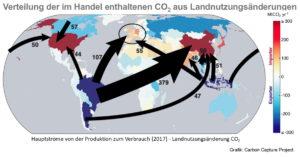
Der jüngste Bericht „Global Carbon Budget 2024“, der in dem Fachjournal Earth System Science Data erschienen ist, zeigt, dass die weltweiten CO2-Emissionen aus fossilen Brennstoffen im 2024 ein Rekordniveau erreichen werden. Verursacht durch fossile Brennstoffe aus Verbrennungsmotoren aller Art und der Landwirtschaft, stieg das globale Kohlenstoffbudget um 0,8 Prozent gegenüber dem Vorjahr. Die Aufnahme von Treibhausgasen durch natürliche Kohlenstoffsenken wie Ozeane und Wälder gleicht dies nur teilweise aus. Je höher die Temperaturen sind, desto weniger können beide Systeme aufnehmen. Besonders deutlich wird dies bei den Wäldern, wo die Wiederaufforstung bei weitem nicht ausreicht, um die Abholzung zu kompensieren. Nichts deutet darauf hin, dass der Höhepunkt bereits erreicht ist.
Posted on 13/11/24
Recent Abstracts
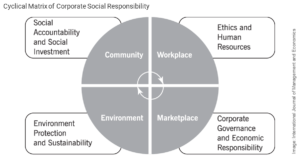
Accountability by Design? Exploring Design Characteristics of Corporate Social Responsibility Standards
Corporate social responsibility (CSR) standards are widely adopted instruments for supporting firms in becoming more accountable, while noncompliance limits their effectiveness and legitimacy. This paper investigates the design of 50 CSR standards across different standard types (principle-based, reporting, certificat ...
Posted on 14/11/21
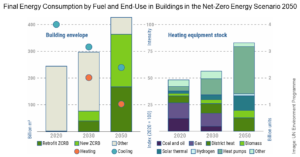
Global Status Report for Buildings and Construction: Towards a Zero‑Emission, Efficient and Resilient Buildings and Construction Sector
To limit additional global warming to below 2 degrees Celsius, countries have adopted policies and codes that have a future impact on the emissions and energy efficiency of buildings. Building emissions need to be reduced along their life cycle through a combination of reducing energy demand, decarbonizing the power s ...
Posted on 13/11/21

Ecocide as an International Crime
One solution to the widespread or long-term damage to the environment gaining support is to make ecocide a crime and punishable by international justice. Major events that massively destroy ecosystems would thus fall under the jurisdiction of the international criminal court. This would allow citizens to hold compani ...
Posted on 13/11/21
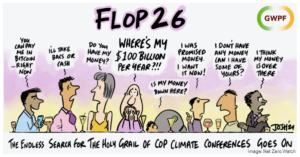
EU Accused of Being the ‘Missing Leader’ at COP26 Climate Talks
The role of the EU in the UN climate process has traditionally been to drive the talks and build the needed high ambition coalition. But, according to green groups, diplomats, observers and allies, the EU appeared at COP26 ineffective, constrained and inept at times. Where the EU was present and represented in negoti ...
Posted on 12/11/21
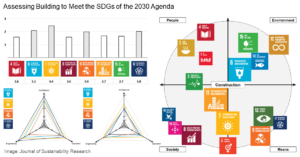
On the Role of Construction in Achieving the SDGs
Construction and real estate have been central to the debates on sustainable development. Where the dominant definition of sustainability in the built environment focuses on the environmental dimension, the UN Sustainable Development Goals (SDGs) offer new opportunities for the building sector to expand its focus. Gre ...
Posted on 12/11/21
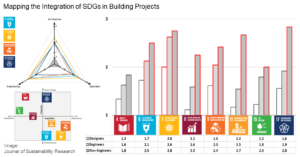
Integrating the Sustainable Development Goals in Building Projects
Building designers are attempting to integrate the 2030 Agenda and its Sustainable Development Goals (SDGs) into projects. This has limited the development of novel approaches as well as new building design methodologies that specifically aim at attaining the agenda’s targets. To help building design teams achieve th ...
Posted on 11/11/21
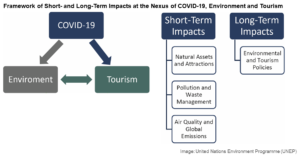
COVID-19, Environmental Impacts, and Implications for Tourism
Tourism in many countries, particularly in developing economies, depends largely on such natural assets as forests, coastlines and wildlife and are linked to such environmental conditions as clean air and water. Given the interdependency of tourism and the environment, the environmental impacts of COVID-19 have short- ...
Posted on 10/11/21
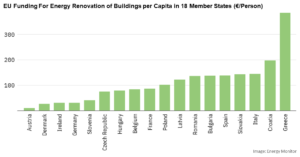
Europe Fails to Act on Energy Waste in Recovery and Resilience Plans
At least 37% of the EU Recovery and Resilience Facility (RRF) for pandemic recovery funding must be spent directly on climate-related actions. This study of the National Recovery and Resilience Plans (NRRPs) in 18 member states reveals that only 8% on average is allocated to energy renovation. Austria is the worst pe ...
Posted on 09/11/21
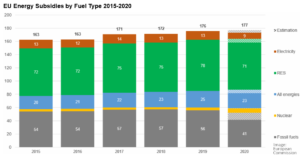
EU Prepares to Include Nuclear and Gas in Green Investment List
EU countries have been arguing for three years whether to include nuclear and gas as green investments in the taxonomy. The decision will shape EU climate and energy policy for decades and have effects far beyond the financial sector. France, the UK, and Eastern European countries threatened to veto the EU taxonomy ...
Posted on 09/11/21

German Politicians Affirm Rejection of Nuclear Power in EU Sustainable Finance Taxonomy
Germany's environmental minister from the Social Democrats (SPD), Svenja Schulze, has affirmed that the country will work towards excluding nuclear power from the EU taxonomy for sustainable investments. She says that they don’t want nuclear energy, don’t think it’s sustainable, and don’t want the EU to support it. T ...
Posted on 08/11/21
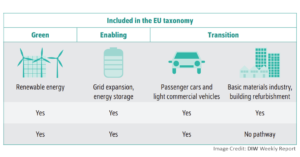
The EU Taxonomy
Different standards and metrics make it difficult for investors to compare green investments. The EU taxonomy establishes a standardized and transparent system for classifying and investing in sustainable economic activities. The taxonomy operates on the project level and the firm level. The project level considers t ...
Posted on 08/11/21
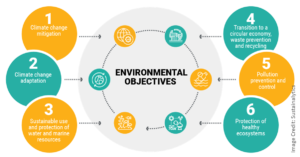
EU Taxonomy for Identifying ‘Sustainable Economic Activities’
The EU taxonomy is a classification system that establishes a list of six "environmentally sustainable economic activities". It defines which economic activities are deemed to be environmentally sustainable to help the EU scale up the needed "sustainable investment" to become "climate neutral" by 2050. Unclear defini ...
Posted on 08/11/21
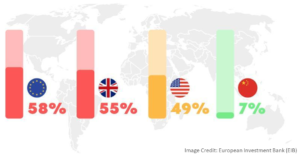
On Climate Change, Government Trust Desperately Needs to Be Restored
75% of EU citizens are more concerned with the climate emergency than they think their government is. Around half say the difficulty in solving the climate crisis is mainly because of government inactivity. Most consider climate change the biggest challenge of this century and believe that a radical change in habits ...
Posted on 07/11/21
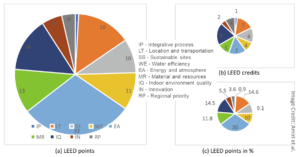
Embodied Emissions of Buildings – A Forgotten Factor in Green Building Certificates
As a points-based green certification, LEED assigns 110 points – the highest level, platinum (80 + points), accredits only 3 out of a total of 110 points directly to embodied emissions. In BREEAM, 12 points (8%) are directly related to material selection, of which 5 points (3%) are based on life cycle assessment (LCA). ...
Posted on 06/11/21
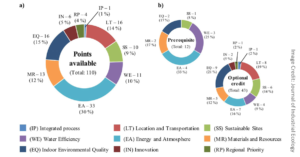
BREEAM and LEED Green Certification Schemes Are ‘Meaningless’ Says Andrew Waugh
Environmental certification schemes such as BREEAM and LEED focus largely on operational emissions rather than CO₂ from the construction supply chain. However, embodied carbon emissions comprise around half of all emissions from buildings. The certification systems focus chiefly on operational carbon. Where 3% of th ...
Posted on 06/11/21

